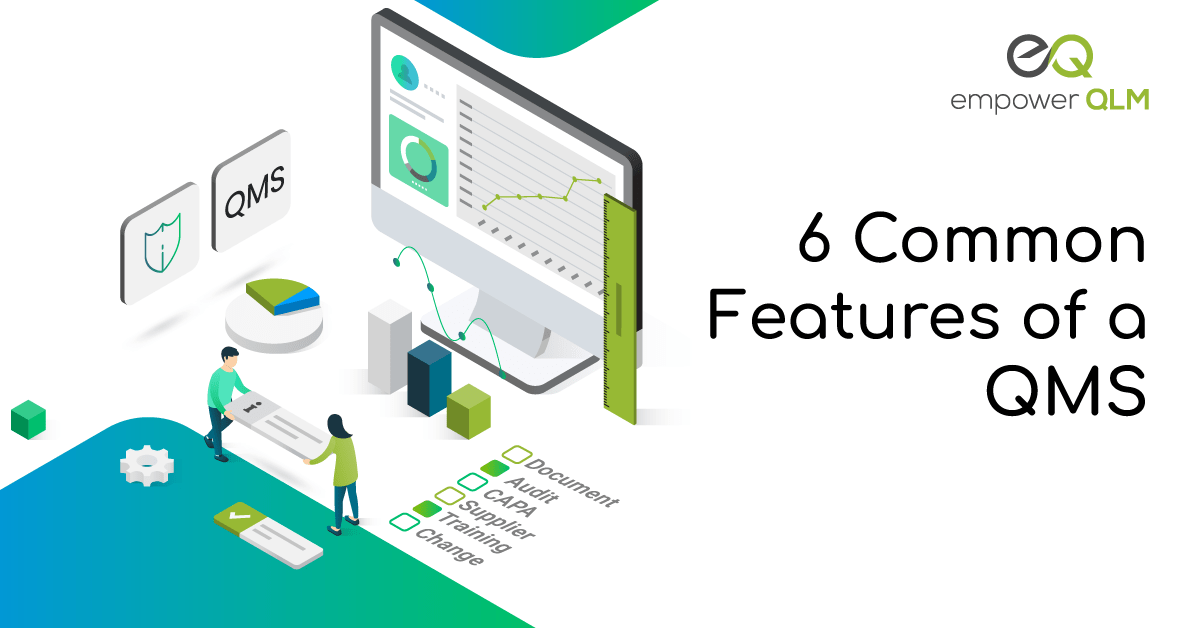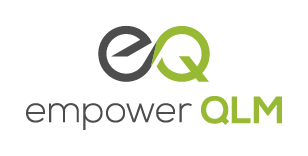
6 Common Features of a QMS
What is a QMS?
A QMS (quality management system), is software that helps organizations oversee quality standards for processes and products. Full management and supply chain initiatives can be overseen for all quality-related activities. Use of QMS technology enables organizations to successfully run programs that meet customer requirements and regulatory standards. Furthermore, with historical data readily available in system, benchmarking past performance is made possible. Organizations can effectively adopt continuous improvements for future renditions of processes and products. A QMS includes the necessary instruments to protect quality.
- Create and enforce policies for adherence to quality standards.
- Establish approval processes to control all aspects of quality lifecycle management.
- Identify corrective and preventive actions (CAPA) for flagged quality issues.
- Manage requirements to stay in full compliance with industry-specific quality standards.
- Manage audits over processes and products to mitigate risk.
What are the common features of a QMS?
At its core, an effective QMS will offer tools, reporting, and analytics to help guide organizations in their decision-making processes. The platform should provide links between all activities to ensure it is a closed-loop system that continuously improves products and processes of organizations. The QMS should offer risk assessments at every step to help organizations make appropriate decisions. Here are 6 common features of a QMS.
1. Document Management
A document management feature provides a central repository for all quality related documents. This eliminates the risk of using outdated information and presents the latest versions to stakeholders for consistent and compliant manufacturing practices. All parties in the supply chain are consistently working off the same set documents, which therefore creates organization efficiency.
Empower QLM offers a document management tools that provides users with straightforward accessibility of all governances and policies. In addition, granular access can be granted based on workflows rules for certain parties to access compliance and quality documents.
Learn more about document management.
2. Audit Management
An audit management feature provides tools to effectively conduct, oversee, and evaluate audits when inspecting processes and products. In addition, audit tools support compliance with regulations and industry-specific quality standards. Audit technology provides valuable insights to monitor the inadequacies of any quality management program.
Empower QLM’s audit management module establishes automated workflows to manage all steps or any audit. Different audit requirements such as internal audits, supplier audits, or system audits can be fully managed onsite or remote.
Learn more about audit management.
3. CAPA Management
A CAPA management feature aids in identifying process-related flaws by examining issues and customer dissatisfaction. Application of automated workflows are used to identify problem areas, detect the source of issues, and implement measures that reduce/eliminate risk exposure to repeat occurrences.
Empower QLM provides tools through its CAPA management module for effective troubleshooting of non-conformances to avoid reoccurrences. Full tracking of CAPA items is available to document quality issues, risks, and solutions for future reference.
Learn more about CAPA management.
4. Supplier Management
A supplier management feature allows organizations to manage their supplier base with quality standards. Identifying each supplier’s level of performance integrity is critical to ensure operations run smoothly. Tools can help trigger reoccurring audits, documentation updates, and provide supplier performance KPIs. This allows organizations to ensure compliance and focus on communicating specific areas that need improvement or reward.
Empower QLM’s supplier management module offers one place to store supplier data such as compliance documents, SOPs, SLAs, and KPIs. In addition, the supplier portal feature provides supplier access to manuals, work instructions, templates, checklists, standards, and trainings.
Learn more about supplier management.
5. Change Management
A change management feature is used to create and manage tasks to achieve the desired changes in a process or product. The steps can be assigned to different employees across different teams. A change management features offers a better way to oversee tasks when changes to processes or products occur. Organizing steps that come with changes are simplified with technology to facilitate task allocation to different stakeholders based on custom rules and triggers.
Empower QLM’s change management module enables proper control of change management to notify all relevant parties of approved changes using seamless automation. With change workflow configuration, it is easier to communicate change affects and it’s easier to implement all change related documents and processes.
Learn more about change management.
6. Training Management
A training management feature provides a single interface to run training initiatives on an enterprise-wide scale. Organizations can easily assign pre-designed training programs to stakeholders or suppliers based upon continuous improvement objectives. Digital applications include certifications, step-by-step procedural guides, or regulatory updates. Quality training technology manages user progress in completing desirable coursework, testing, or session attendance.
Empower QLM’s dedicated software, Empower QLMS (quality learning management system), provides customization options to meet any corporate training objectives. The tool provides companies with the scalability necessary to conduct, manage, track, and report on trainings globally.
Learn more about training management.
About Empower QLM
Empower QLM, a division of RGBSI, is a cloud-based quality management system (QMS) for total quality lifecycle management (QLM). The technology is the only QMS on the market that enables PPAP automation as result of APQP. It establishes compliance with industry-specific standards across the automotive, aerospace, defense, medical, locomotive, and energy & power generation sectors. From product conception through manufacturing, Empower QLM provides complete transparency by connecting all relevant parties, including the supply chain.
Looking for QMS technology to better manage processes and products?
Browse Software and Service Solutions
Need help with your quality lifecycle management activities?
Download Empower QLM Software Overview Brochure
